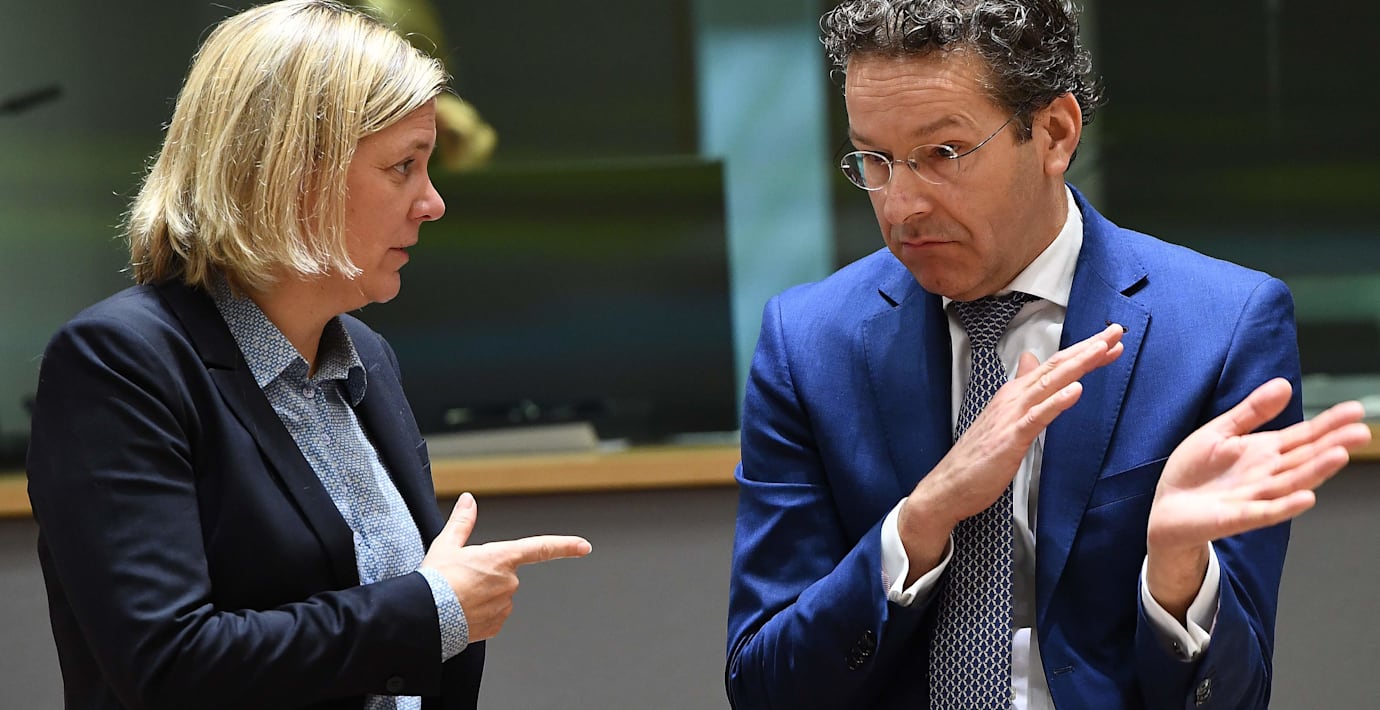Wikipedia (en)
The European debt crisis (often also referred to as the Eurozone crisis or the European sovereign debt crisis) is a multi-year debt crisis that has been taking place in the European Union since the end of 2009. Several eurozone member states (Greece, Portugal, Ireland, Spain and Cyprus) were unable to repay or refinance their government debt or to bail out over-indebted banks under their national supervision without the assistance of third parties like other Eurozone countries, the European Central Bank (ECB), or the International Monetary Fund (IMF).
The detailed causes of the debt crisis varied. In several countries, private debts arising from a property bubble were transferred to sovereign debt as a result of banking system bailouts and government responses to slowing economies post-bubble. The structure of the eurozone as a currency union (i.e., one currency) without fiscal union (e.g., different tax and public pension rules) contributed to the crisis and limited the ability of European leaders to respond. European banks own a significant amount of sovereign debt, such that concerns regarding the solvency of banking systems or sovereigns are negatively reinforcing.
As concerns intensified in early 2010 and thereafter, leading European nations implemented a series of financial support measures such as the European Financial Stability Facility (EFSF) and European Stability Mechanism (ESM). The ECB also contributed to solve the crisis by lowering interest rates and providing cheap loans of more than one trillion euro in order to maintain money flows between European banks. On 6 September 2012, the ECB calmed financial markets by announcing free unlimited support for all eurozone countries involved in a sovereign state bailout/precautionary programme from EFSF/ESM, through some yield lowering Outright Monetary Transactions (OMT).
Return to economic growth and improved structural deficits enabled Ireland and Portugal to exit their bailout programmes in July 2014. Greece and Cyprus both managed to partly regain market access in 2014. Spain never officially received a bailout programme. Its rescue package from the ESM was earmarked for a bank recapitalization fund and did not include financial support for the government itself.
The crisis had significant adverse economic effects and labour market effects, with unemployment rates in Greece and Spain reaching 27%, and was blamed for subdued economic growth, not only for the entire eurozone, but for the entire European Union. As such, it can be argued to have had a major political impact on the ruling governments in 10 out of 19 eurozone countries, contributing to power shifts in Greece, Ireland, France, Italy, Portugal, Spain, Slovenia, Slovakia, Belgium and the Netherlands, as well as outside of the eurozone, in the United Kingdom.



